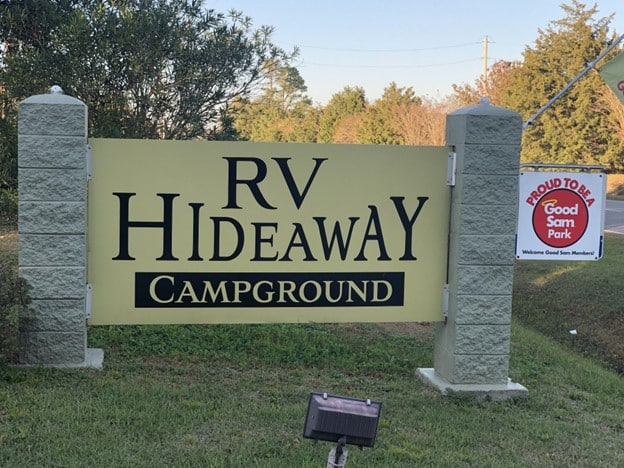Planning a home renovation, spring cleaning, or a large-scale construction project? Navigating waste disposal can feel overwhelming. But it doesn't have to be! This comprehensive guide will walk you through everything you need to know about dumpster rental services, ensuring a smooth and efficient waste management process.
What is Dumpster Rental?
Dumpster rental provides a convenient and effective solution for managing large volumes of waste. It involves renting a large, roll-off container—a dumpster—for a specific period to dispose of unwanted materials. This service is particularly useful for managing waste from construction projects, home renovations, demolition, landscaping, and even large-scale spring cleaning efforts. Waste management companies deliver the dumpster to your location, you fill it, and they return to collect it once it's full, handling the transportation and disposal of the waste responsibly and efficiently. This process eliminates the need for numerous trips to the local landfill or recycling center. This simple yet efficient process makes it a cost-effective waste management choice for both residential and commercial applications.
Benefits of Renting a Dumpster
Renting a dumpster offers several advantages over other waste disposal methods. The most significant benefit is convenience; you can dispose of large quantities of waste without the hassle of constant trips to the local dump. This saves you considerable time and effort, allowing you to focus on your project. Dumpster rental is also a cost-effective solution, particularly for larger projects. While upfront costs exist, the efficiency and convenience generally outweigh the expense of alternative methods like multiple trips to landfills. Furthermore, most dumpster rental companies offer various sizes, ensuring that you only pay for the space you need. The added benefit of organized waste disposal minimizes environmental impact by adhering to local waste disposal regulations. This simplifies waste management, creating a streamlined and efficient process.
Types of Dumpsters Available
Several types of dumpsters cater to diverse needs. Roll-off dumpsters, the most common type, are large containers transported and placed using a specialized truck. Front-load dumpsters are smaller and designed for frequent waste pickups. Yard waste dumpsters are perfect for managing yard debris and green waste. The choice depends on your specific needs and the nature of your waste.
Residential vs. Commercial Dumpsters
Residential dumpster rentals are typically smaller and suited for smaller projects like home renovations or cleanups. Commercial dumpsters are generally larger, built to handle the heavier waste generated by construction sites and businesses. The appropriate size and type of dumpster will vary drastically depending on the volume and type of waste generated.

How to Choose the Right Dumpster for Your Needs
Selecting the right dumpster involves careful consideration of several factors. The most important is the volume of waste you anticipate. Dumpster sizes are typically measured in cubic yards, ranging from small containers ideal for minor cleanups to large units suitable for major construction projects. The type of waste you need to dispose of is also critical; some materials require specific handling and disposal methods. Understanding your local waste management regulations is crucial, ensuring you avoid fines and penalties. You should also determine the rental period needed and compare prices from different providers. To ensure a smooth waste disposal process, careful planning is critical. A dumpster size guide from your local provider can be incredibly helpful.
The Dumpster Rental Process
Renting a dumpster is straightforward. You typically start by contacting a dumpster rental company, either online or by phone. Provide them with details about your project, the type and estimated volume of waste, and your desired rental period. They'll help you choose the right dumpster size and schedule delivery and pickup. Once the dumpster arrives, you fill it according to the guidelines provided, ensuring you don't overload it. The company will then pick up the dumpster at the scheduled time, transporting it to a processing facility for proper disposal or recycling. The entire process is usually designed for ease and convenience, with clear communication from the rental company. The efficiency of this system streamlines waste removal.
Waste Management Practices to Consider
Responsible waste management is crucial for environmental sustainability. Familiarize yourself with your local recycling programs and strive to maximize landfill diversion. Separate recyclable materials from other waste whenever possible.
Sustainable Disposal Methods
Explore composting methods for organic waste, such as yard clippings and food scraps. Prioritize using biodegradable and compostable materials whenever feasible. By incorporating these practices, you can reduce your environmental footprint and contribute to a more sustainable future. Proper waste management is not just about convenience, it's about protecting our planet.

Common Uses for Dumpster Rentals
Dumpster rentals are incredibly versatile, serving a wide range of applications. They're commonly used for home renovations, construction debris removal, demolition projects, landscaping, and even large-scale spring cleaning. Businesses also rely on dumpsters for regular waste disposal, managing everything from office waste to industrial byproducts. The adaptability of dumpster services makes them invaluable for various situations.
Frequently Asked Questions (FAQ)
What can I put in a dumpster? Most companies provide a list of acceptable and unacceptable items. Generally, construction debris, yard waste, and household garbage are acceptable. Hazardous materials, electronics, and certain chemicals are usually prohibited.
How much does it cost to rent a dumpster? Pricing varies based on dumpster size, rental duration, and location. Obtain quotes from multiple companies for comparison.
How long can I keep a dumpster? Rental periods are typically flexible, ranging from a few days to several weeks. Clarify the rental terms with your provider.
Are there any restrictions on dumpster rental? Yes, there might be weight limits, restrictions on the types of waste allowed, and potential permit requirements depending on https://zenwriting.net/dearuspukp/secure-eco-friendly-dumpster-rentals-your-guide-to-recycling-services-in-2025 your location. Check with local authorities.
What happens to the waste after it is collected? The waste is transported to a processing facility for proper disposal, recycling, or other appropriate management methods, in accordance with local regulations.
In conclusion, renting a dumpster is a highly efficient and convenient solution for various waste disposal needs. By understanding the different types of dumpsters available, the rental process, and responsible waste management practices, you can make informed decisions to streamline your project and contribute to environmental sustainability. Start planning your next project today by contacting a reputable dumpster rental company in your area!